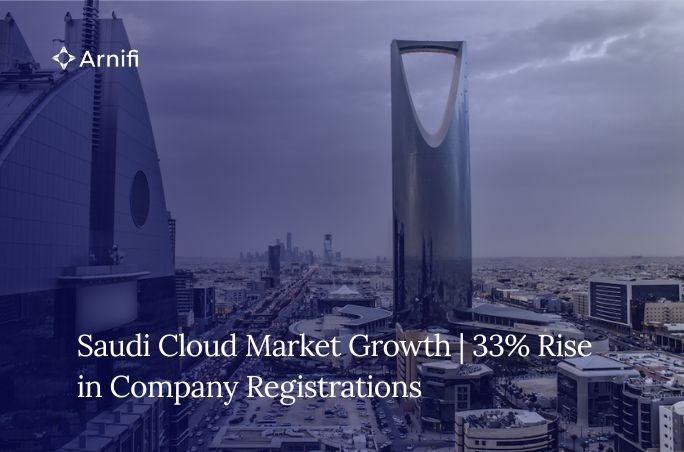Singapore 2024 Outlook: Business Strategy Analysis
by Shethana Aug 21, 2024  12 MIN READ
12 MIN READ

Singapore’s economic hopes for 2024 look good. There will be steady growth and a focus on new ideas. The country’s great location, friendly business scene, and skilled workforce help bring in foreign investment. Still, businesses in Singapore must watch out for global economic risks and changes in politics.
To do well in this situation, businesses need to keep up with the latest trends. They should change their plans when needed. Important things to watch include government programs, how different industries are doing, and new technologies changing the business world. By knowing these changes, businesses can grow and stay strong.
Key Economic Indicators and Trends
Singapore shows strong signs of a stable and growing economy. The country often ranks highly in global competitiveness and is known for its ease of doing business. With its focus on innovation, Singapore is a leader in technology and research in the region.
In Asia, Singapore is a key point for businesses looking to grow. Its solid trade relations and advanced infrastructure help companies reach the growing Southeast Asian market.
However, global economic challenges and rising prices need careful attention. Businesses should use data to watch important economic signs. This will help them make smart choices to reduce risks and take advantage of new chances.
Impact of Global Economic Shifts on Singapore
Global economic changes, geopolitical issues, and problems in supply chains can affect many places, even strong economies like Singapore. The ongoing war in the Middle East and changes happening in Hong Kong can affect trade and what investors feel.
Singapore needs to deal with these changes wisely since it relies a lot on global trade and investment. It is essential to find new trade partners, ensure supply chains are safe, and build resilience to reduce risks.
In addition, being aware of global economic shifts and their effects helps businesses expect problems and take advantage of new opportunities. Being flexible, adaptable, and having a proactive risk management plan are very important for businesses in this unstable environment.
Sector-Specific Outlooks for 2024
Looking at the outlook for specific sectors helps us understand the chances and challenges in different industries. In 2024, Singapore’s technology, finance, and tourism sectors have good prospects, but they need to adapt.
The technology sector is expected to keep growing. Financial institutions must change to meet new regulations and a quickly changing environment. At the same time, the tourism and hospitality industry is hoping for a recovery. They need fresh ideas to draw in visitors and improve their experiences.
Technology and Innovation: Leading the Way Forward
Singapore’s government prioritizes technology and innovation to support its growth. The Smart Nation initiative strongly focuses on AI development and use. This helps the country’s digital transformation in many areas.
This commitment to innovation offers great chances for businesses in technology. Important growth areas are:
- Artificial Intelligence (AI) and Machine Learning: These are used in fields like fintech and healthcare. They provide solutions that improve efficiency and help in making decisions.
- Data Analytics and Cybersecurity: The rising amount of data requires strong data management and security. This creates a need for special skills in these areas.
- Fintech and Blockchain: Singapore aims to be a global fintech leader. It has a friendly regulatory grow environment and is exploring blockchain technology for financial services.
By adopting these technology trends, businesses can lead in innovation. This helps them grow and stay competitive in the global market.
Finance and Banking: Adjusting to New Normals
Singapore’s finance and banking sector is very important to its economy. Right now, it is changing a lot because of new digital ideas and changing rules. Fintech companies are changing how things are done. This is making banks change too. They need to offer digital solutions to meet what customers want.
Even though the sector is still strong, banks are focusing on good risk management. They need to deal with problems like cybersecurity threats, data privacy issues, and changing regulations. This is important for keeping trust and stability in the financial system.
If financial institutions accept digital transformation and invest in developing their staff, they can work better, create better customer experiences, and become more competitive in a fast-changing market.
Tourism and Hospitality: Bouncing Back
After a tough time, Singapore’s tourism and hospitality industry is improving. As travel limits go down, new ideas to improve visitor experiences and draw in tourists are important for ongoing growth.
Using technology for easy travel, like online booking and personal advice, can really make visitors happier. Also, Singapore’s focus on sustainability matches what travelers want, making it more attractive as a place to visit.
By caring about traveler well-being, safety, and offering unique cultural experiences, Singapore’s tourism can become a top global travel spot again. Working together with the government, industry leaders, and tech companies is key to reaching long-lasting growth.
Regulatory Changes and Their Implications for Businesses
Singapore has a clear and efficient regulatory system, but recent changes need attention from businesses. New updates about foreign investment, taxes, and compliance are made to keep the market fair and competitive.
Companies working in Singapore or thinking about starting there should learn about these new rules. It is wise to get help from legal and financial experts to follow the rules. Also, staying updated with information from government sources can help avoid problems and create a better working experience.
New Policies Affecting Foreign Investments
Singapore welcomes foreign investment, but recent regulatory updates aim to ensure investments align with national interests and prioritize quality over quantity. Changes impact sectors like real estate, technology, and financial services, requiring investors to navigate regulations carefully.
Understanding the rationale behind these shifts is crucial. Singapore seeks to attract sustainable investments that create high-quality jobs and contribute to the country’s overall economic growth. Transparency and a proactive approach to due diligence are vital for foreign investors.
| Sector | Key Regulatory Changes |
| Technology | Enhanced scrutiny of foreign investments in cybersecurity and data management companies |
| Real Estate | Tighter regulations on foreign ownership of residential properties |
| Financial Services | Increased capital requirements for foreign banks operating in Singapore |
Taxation and Compliance Updates
Staying informed about tax and compliance rules is very important for businesses in Singapore. Recent changes aim to make taxes more clear and ensure that companies help with the country’s revenue.
For example, the Goods and Services Tax (GST) will rise to 9% in 2024, affecting businesses in many areas. It is essential to understand how this change will impact pricing, record-keeping, and compliance to avoid penalties.
Getting help from tax consultants who know Singapore’s rules can be very useful. Companies should regularly check their operations and make sure they follow the latest tax and compliance rules to keep their business compliant and sustainable.
Adapting Business Strategies to Thrive in 2024
Thriving in Singapore’s busy business world needs flexibility, new ideas, and a good understanding of new trends. In 2024, important strategies for success focus on digital change, being eco-friendly, and developing talent.
Businesses should use digital tools to improve how they work, better serve their customers, and stay ahead. Using e-commerce platforms, taking advantage of data insights, and looking into AI uses are key steps in this change.
Digital Transformation and E-commerce Adoption
Singapore has a strong digital structure and a high rate of internet use. This makes it important for businesses to adopt e-commerce. The rise of online shopping sites gives companies a chance to reach more customers and grow their market.
Digital transformation does not just involve e-commerce. It also includes making operations smoother, using data to make decisions, and improving how businesses connect with customers. Companies need to invest in digital tools, train their workforce, and develop a digital-first attitude to stay relevant.
By accepting digital transformation, businesses can grow their customer base. They can also make their internal processes better, cut costs, and prepare for long-term growth in a more digital world.
Sustainability and Green Initiatives: A Must-Have Strategy
Sustainability is now essential for businesses, especially in eco-friendly Singapore. More and more consumers prefer companies that focus on strong sustainable practices. This makes sustainability an important factor for businesses to stand out.
The Singapore government supports green efforts with different incentives and rules. Companies can use these chances to lessen their impact on the environment. They can also save money and improve how people view their brand.
Adopting sustainable practices, like cutting down waste, saving energy, and using eco-friendly materials, shows a commitment to social responsibility. This not only boosts brand value but also appeals to consumers who care about the environment.
Workforce Development and Talent Retention
As businesses adopt automation and digital tools, the need for special skills increases. This makes it very important to focus on workforce development and keeping talent. Attracting and keeping skilled people is essential for business growth.
Creating a good work atmosphere that focuses on employee well-being, learning, and chances for career growth can greatly help to keep talent. Offering fair pay and promoting a culture of learning are also key factors.
When businesses invest in their employees’ growth, it helps both the workers and the company in the long run. By nurturing a skilled and motivated team, businesses can encourage innovation, boost productivity, and stay competitive.
Leveraging Technology for Competitive Advantage
Technology is changing industries and transforming the way companies compete. Businesses in Singapore need to use technology, especially AI and blockchain, to simplify their operations, work better, and stay ahead of their competition.
By investing in AI, tasks can become automated, data can be analyzed for better insights, and decision-making can improve. At the same time, blockchain technology provides more transparency, security, and efficiency in areas like managing supply chains and dealing with financial transactions.
AI and Machine Learning Innovations
AI and Machine Learning are changing how industries work. Companies that start using them early can get a big advantage. AI can help create tailored customer experiences, predict trends, and automate tasks.
In Singapore, businesses are using AI chatbots for customer support. They are also using machine learning to detect fraud in finance. Additionally, they apply predictive analytics to manage inventory in retail. These changes boost efficiency, help make better decisions, and increase customer satisfaction.
For businesses to make the most of AI, they should focus on data security. They should also think about ethics and invest in training people to manage these systems well.
Blockchain for Transparency and Efficiency
Blockchain technology is becoming popular in Singapore. It is known for being safe and clear. This tech could change how supply chains work, make financial transactions better, and boost data security in different fields.
For example, blockchain allows for real-time tracking of products. It helps verify the authenticity of goods and lowers the chances of fraud in supply chains. In finance, blockchain can make cross-border payments easier, cut down transaction fees, and provide greater transparency.
Though blockchain use is still new, its advantages are clear. Businesses should look into small projects, work with tech providers, and keep up with changing rules. This way, they can use blockchain to improve efficiency and transparency.
Conclusion
In conclusion, it is important to understand the economy and specific market trends in Singapore for 2024. This knowledge is vital for businesses to succeed in a changing environment. Companies should adapt their plans to include technology, sustainability, and keeping their skilled workers. Using digital transformation, green projects, and new technologies like AI will help businesses stand out. By staying quick and ready for changes in rules and market trends, businesses can grow and stay strong in the changing Singapore market. It is key to stay updated on leading industries, rule changes, and digital transformation strategies to manage the business world well.
Frequently Asked Questions
What are the top industries to watch in Singapore for 2024?
The tech industry is important to keep an eye on in Singapore for 2024. This is especially true for AI and fintech. Also, the tourism and hospitality sectors are bouncing back. It is good to track their growth, especially in sustainable businesses.
How can businesses prepare for Singapore’s regulatory changes?
Businesses in Singapore can get ready for rule changes by keeping up with government resources. They should also work with legal and financial experts. It is important to regularly check their internal operations. They need to make sure they follow the rules.
What strategies should businesses adopt to enhance digital transformation?
To improve digital transformation, businesses in Singapore can use several strategies. They should invest in digital technologies. It is also important to upskill their workforce. Additionally, fostering a digital-first mindset across the organization will help.
How can sustainability contribute to a business’s success in Singapore?
Sustainability helps businesses succeed in Singapore. It attracts consumers who care about the environment. It also aligns with government efforts. This can lower costs for operations. Plus, it strengthens the reputation of a brand.
About Arnifi
Arnifi is digital first Corporate service provider helping companies enter the Middle East region, starting with UAE and Saudi Arabia markets. Founded and backed by professionals from Amazon, Souq and other large companies operating in KSA – the team understands what it takes to succeed as a startup in both UAE and Saudi Arabian markets, apart from going through the setup process multiple times.
Arnifi will provide a truly digital experience to entry and scale up of companies both UAE and Saudi Arabia. The Arnifi promise is simple, yet revolutionary, use technology and a great team to provide transparency, efficiency and great customer experience in the whole process. Check out at – www.Arnifi.com for more details.
Also Read: The Gulf’s Strategic Investment in Mining
Top Singapore Packages

Related Articles
Top Singapore Packages



